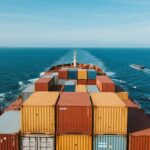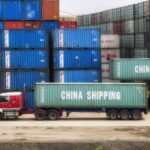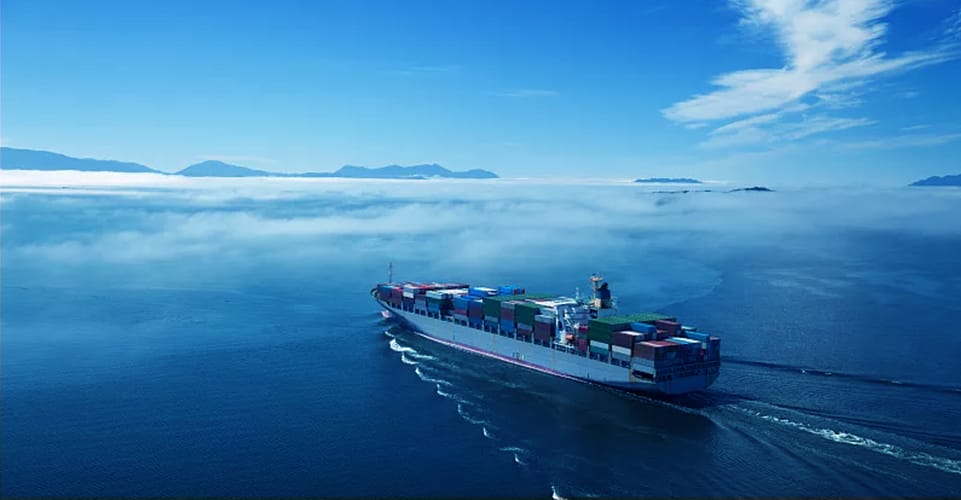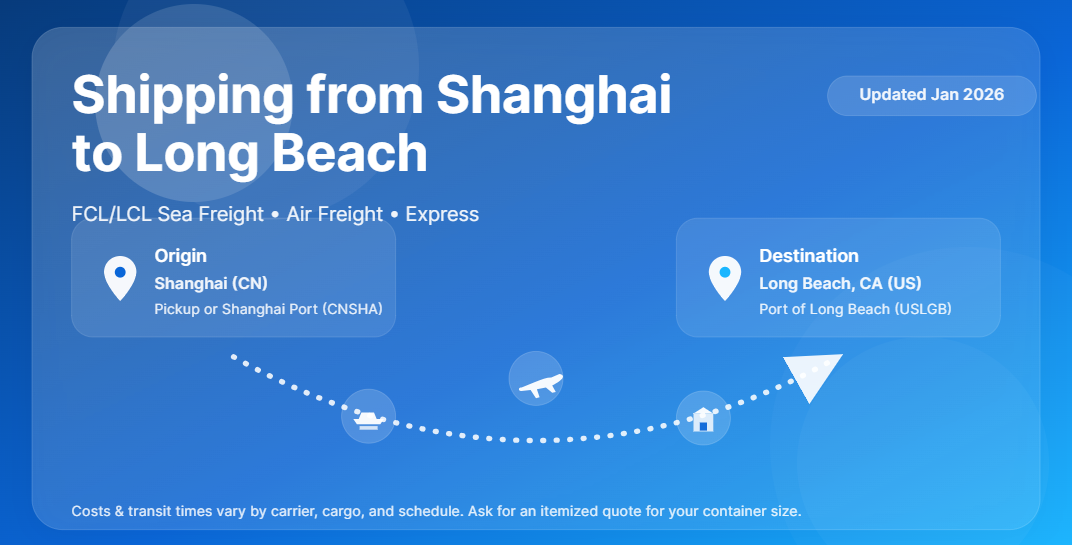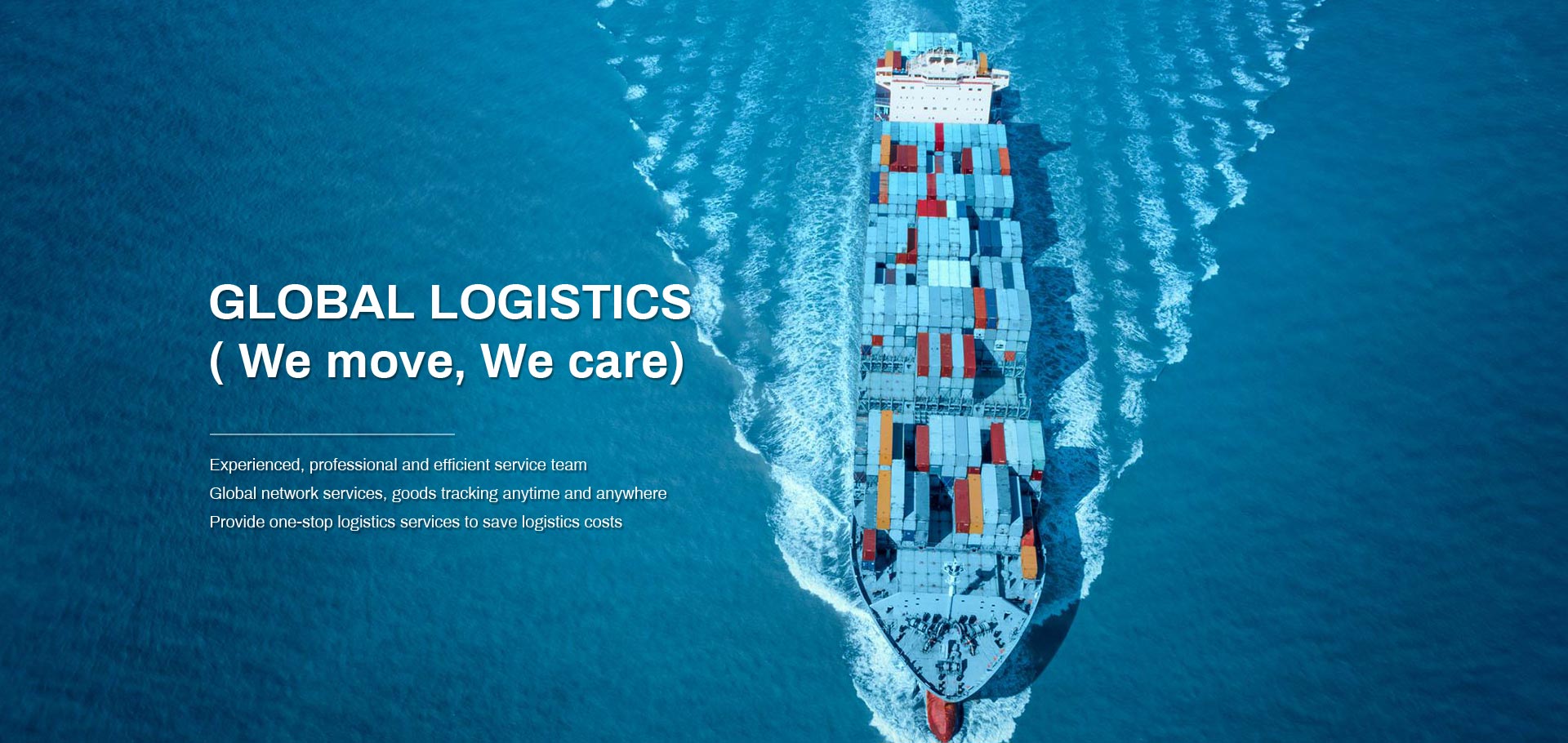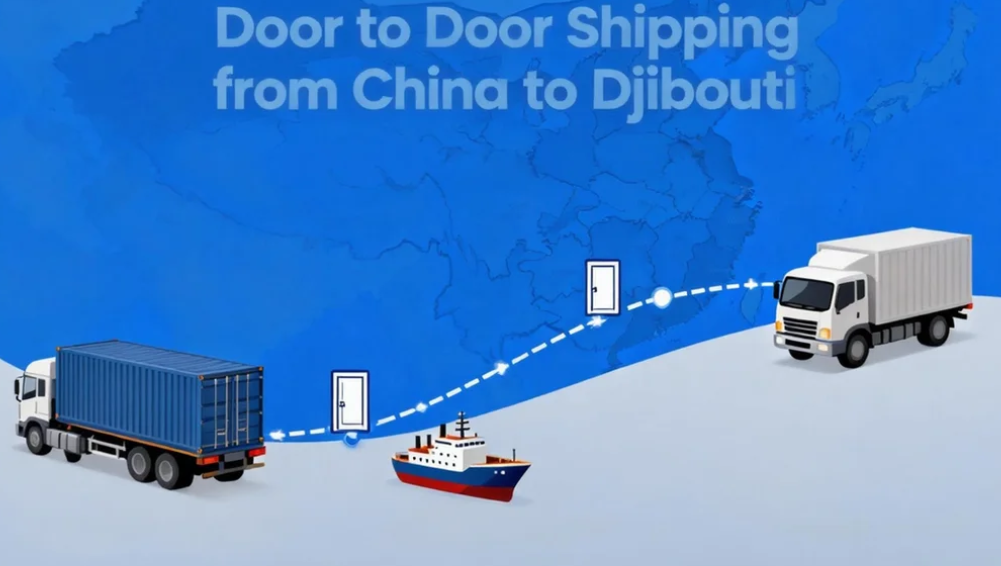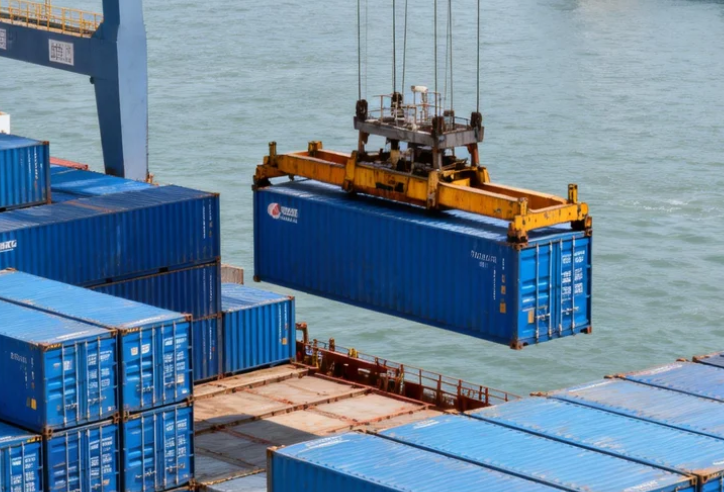Are you looking to navigate the complexities of shipping from Guangzhou to Vancouver, Canada?
With various shipping methods and factors affecting costs and timing, it can be overwhelming. In this comprehensive guide, we will explore the different shipping options, including sea freight and air freight, along with tips to reduce expenses and transit times. Additionally, we’ll delve into customs regulations and strategies for a seamless shipping experience. Whether you’re an importer or a business owner, this article will equip you with essential insights to streamline your shipping process.
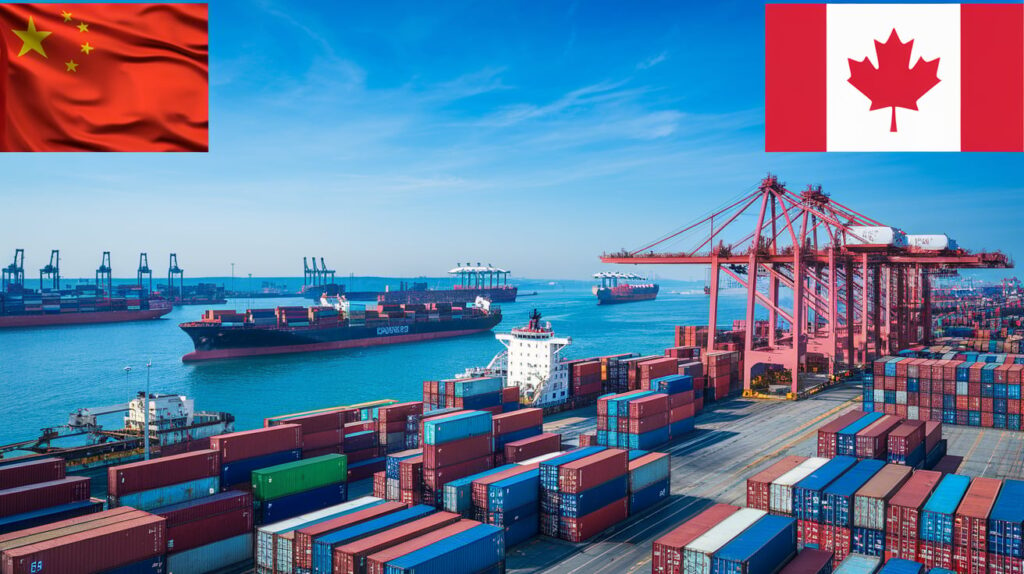
Shipping Methods from Guangzhou to Vancouver
Sea Freight from Guangzhou to Vancouver
Sea Freight is one of the most popular methods for shipping goods from Guangzhou to Vancouver. This method is particularly advantageous for large volumes of cargo due to its cost-effectiveness and ability to handle various types of goods, including bulk, breakbulk, and containerized freight.
Typically, shipping from Guangzhou to Vancouver via sea takes approximately 15 to 30 days depending on factors such as the specific shipping line, weather conditions, and port congestion. The main shipping routes used involve transit via major ports such as Shenzhen or Hong Kong, before reaching Vancouver.
When considering sea freight, it is essential to look into different shipping options, such as Full Container Load (FCL) or Less than Container Load (LCL), which can significantly impact the overall shipping cost and logistics involved.
Air Freight from Guangzhou to Vancouver
On the other hand, Air Freight is the preferred method for shipping goods that are time-sensitive. Although typically more expensive than sea freight, air transport offers a transit time of approximately 10 to 15 days from Guangzhou to Vancouver. This expedited service is ideal for high-value or perishable items.
Air freight provides a range of flexibility with various carriers offering direct or connecting flights. Additionally, many air freight options include door-to-door services, making the overall logistical process easier for importers. However, it is crucial to consider customs regulations and potential duties, which can add to the overall cost of air shipping. For detailed information, check out Air Freight.
Shipping Costs from Guangzhou to Vancouver
Factors Influencing Shipping Costs
Several factors affect the overall shipping costs from Guangzhou to Vancouver, including:
| Factor | Description |
|---|---|
| Mode of Transport | Sea freight is generally cheaper than air freight due to lower operational costs. |
| Cargo Type and Size | Bulky or hazardous materials may incur additional fees. |
| Seasonality | Peak seasons may lead to increased freight charges due to higher demand. |
| Distance and Route | Longer or less common routes may be more expensive. |
| Insurance and Handling Fees | Additional insurance costs may apply, especially for high-value goods. |
Tips for Reducing Shipping Expenses
To optimize shipping expenses from Guangzhou to Vancouver, consider the following tips:
- Consolidate Shipments: Grouping shipments can reduce costs by maximizing container space. See more about consolidated freight shipping.
- Negotiate with Freight Forwarders: Building a relationship with a reliable freight forwarder, such as Dantful International Logistics, can help you secure better rates and terms.
- Optimize Packaging: Ensure that packaging is efficient to minimize dimensional weight and reduce freight costs.
- Plan Shipments During Off-Peak Seasons: Avoid peak shipping times to take advantage of lower rates.
- Utilize Volume Discounts: If you regularly ship large amounts of goods, inquire about volume discounts from carriers.
By leveraging these strategies and working with a professional logistic service provider like Dantful, importers can achieve significant cost savings while ensuring a smooth shipping process.
Shipping Times from Guangzhou to Vancouver
When importing goods from Guangzhou, China to Vancouver, Canada, understanding the shipping times and the factors affecting them is crucial for effective supply chain management.
Average Transit Times for Sea and Air Freight
The transit times for sea freight and air freight can vary significantly due to several factors including shipping lines, weather conditions, and port operations. Here’s a general overview of the average transit times:
| Shipping Method | Average Transit Time | Key Considerations |
|---|---|---|
| Sea Freight | 20-30 days | Dependent on shipping route, potential delays at ports, and customs clearance. |
| Air Freight | 5-10 days | Generally faster but can be impacted by flight availability and customs processing times. |
Sea Freight is often chosen for its cost-effectiveness, particularly for large shipments. However, it requires more time due to the longer distance and the scheduling of vessels. Conversely, air freight is ideal for urgent shipments but comes at a higher cost.
Strategies to Minimize Shipping Delays
To ensure timely delivery of your goods, consider the following strategies:
Choose Reliable Freight Forwarders: Partnering with a highly professional freight forwarder like Dantful International Logistics can significantly reduce the likelihood of delays. Their expertise in handling international shipping can help navigate any potential issues.
Maintain Clear Communication: Regular communication with your supplier and freight forwarder can prevent misunderstandings that may lead to delays.
Use Technology: Implement tracking systems to monitor your shipment in real-time, allowing you to address any issues proactively.
Plan for Seasonal Variations: Be aware of peak shipping seasons (e.g., holidays) and plan your shipments accordingly to avoid delays.
Pre-clear Customs: If possible, submit customs documents in advance to expedite the clearance process upon arrival in Canada.
READ MORE:
- Shipping From China to the USA
- Shipping From China TO Canada
- Shipping From China TO Mexico
- Shipping From China to Panama
- Shipping From China to Costa Rica
- Shipping From China to Brazil
- Shipping From China TO Colombia
- Shipping From China to Jamaica
- Shipping From China to Venezuela
- Shipping From China to Argentina
Customs Clearance and Duties for Shipping to Canada
Understanding the customs clearance process and duties involved when shipping to Canada is crucial for avoiding unexpected costs and delays.
Understanding Canadian Customs Regulations
Canada has specific customs regulations that must be adhered to when importing goods. Here are some key points to consider:
Documentation: Ensure all required documents are accurate and complete. This includes the bill of lading, commercial invoice, and any certificates of origin or compliance.
HS Codes: Proper classification of your goods using the Harmonized System (HS) codes is essential for determining applicable duties and taxes.
Permits and Licenses: Some goods may require special permits or licenses before they can enter Canada. Make sure to check if your products fall into this category.
How to Calculate Duties and Taxes
Duties and taxes on imports to Canada can vary widely based on the type of goods being shipped. Here’s how to calculate them:
Determine the Value for Duty: This is generally the transaction value, which includes the cost of the goods plus any additional charges (e.g., freight, insurance).
Identify the Applicable Tariff Rate: Use the HS code to find the tariff rate for your goods on the Canada Border Services Agency (CBSA) website.
Calculate GST/HST: Goods and Services Tax (GST) or Harmonized Sales Tax (HST) may also apply. This is generally calculated as a percentage of the total value for duty.
Use a Customs Broker: Hiring a customs broker can simplify this process and ensure compliance with all regulations.
In conclusion, being aware of shipping times and customs regulations is essential for a smooth importing process from Guangzhou to Vancouver. By taking proactive measures and leveraging the expertise of a reliable freight forwarder like Dantful International Logistics, you can enhance your shipping experience and minimize costs and delays. For more detailed information on Shipping From China to Canada, visit our dedicated page.
How to Reduce Shipping Time from Guangzhou to Vancouver
Best Practices for Efficient Shipping
When importing goods from Guangzhou to Vancouver, time efficiency is crucial. Here are some best practices to ensure a streamlined shipping process:
Choose the Right Freight Forwarder: Partnering with a reliable freight forwarder like Dantful International Logistics can make a significant difference. Our team has extensive knowledge of various shipping routes and can recommend the most efficient methods tailored to your needs.
Consolidate Shipments: Instead of sending multiple small shipments, consolidate your cargo into a single shipment. This not only saves time but can also reduce costs. Consolidated freight shipping allows you to take advantage of better rates and minimizes handling times.
Pre-Book Space: During peak times, securing cargo space on vessels or flights can be challenging. Always book your shipping space in advance, especially during busy seasons. This practice can significantly reduce the risk of delays.
Prepare Accurate Documentation: Ensure that all shipping documents, such as invoices, packing lists, and customs declarations, are accurate and complete. Inaccuracies can lead to customs delays, which significantly impact delivery times.
Monitor Your Shipment: Use tracking systems to keep an eye on your goods in transit. Services offered by Dantful International Logistics include real-time tracking, allowing you to identify any potential delays quickly.
Utilizing Express Services for Faster Delivery
For urgent shipments, utilizing express services can significantly reduce transit times. Here are some options available for shipping from Guangzhou to Vancouver:
Air Freight: While generally more expensive than sea freight, air freight is the fastest option available. For example, transit times from Guangzhou to Vancouver can be as short as 3 to 7 days. Dantful offers competitive rates for air freight with reliable carriers.
Express Courier Services: Companies like FedEx, DHL, and UPS provide express courier services that can ensure delivery within 1 to 5 days. These services often include customs clearance, which can further expedite the process.
Direct Flights: Opt for direct flights when available. This eliminates layover times and reduces the risk of delays caused by connecting flights.
How to Lower Freight Costs from Guangzhou to Vancouver
Optimizing Packaging and Load Sizes
Reducing shipping costs can be just as important as minimizing transit times. Here are strategies to optimize packaging and load sizes:
Choose the Right Packaging: Use lightweight, durable materials that provide adequate protection without adding unnecessary weight. This can lower shipping costs significantly, especially for air freight.
Maximize Container Space: When shipping via sea freight, ensure that your cargo is packed efficiently. This means using standard-sized pallets and containers to maximize cargo space. Dantful can assist you in optimizing your load size to ensure you are not paying for unused space.
Reduce Dimensional Weight: Carriers often charge based on dimensional weight for air freight. To reduce costs, pack your goods in a way that minimizes their volume without compromising safety.
Leveraging Volume Discounts with Carriers
If you are a frequent shipper, consider the following ways to leverage volume discounts:
Establish a Relationship with Carriers: Building strong relationships with carriers can lead to better rates and priority service. Dantful International Logistics has established partnerships with various shipping lines and airlines, which enables us to offer competitive pricing for our clients.
Negotiation: Do not hesitate to negotiate shipping rates, especially if you have a consistent shipping volume. Many carriers are willing to offer discounts to secure regular business.
Join Freight Forwarding Networks: By joining networks or associations, importers can often access exclusive pricing and deals. Dantful is part of several logistics networks, allowing us to pass savings onto our clients.
Conclusion
In summary, when shipping goods from Guangzhou to Vancouver, there are several key considerations for importers to keep in mind:
- Implementing best practices for efficient shipping can significantly reduce transit times.
- Utilizing express services and monitoring shipments can also help ensure timely delivery.
- To lower freight costs, optimizing packaging, load sizes, and leveraging volume discounts with carriers are effective strategies.
By following these tips and working with a professional logistics partner like Dantful International Logistics, you can enjoy a smoother shipping experience and maximize your cost savings while importing from China. Whether you need ocean freight, air freight, or door-to-door service, we are here to provide you with a highly professional, cost-effective, and high-quality logistics solution.

Young Chiu is a seasoned logistics expert with over 15 years of experience in international freight forwarding and supply chain management. As CEO of Dantful International Logistics, Young is dedicated to providing valuable insights and practical advice to businesses navigating the complexities of global shipping.


